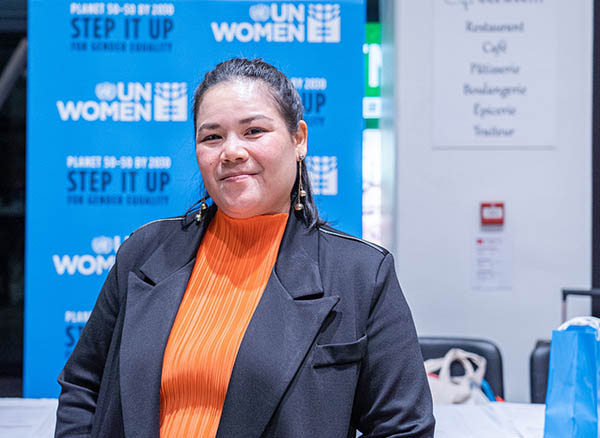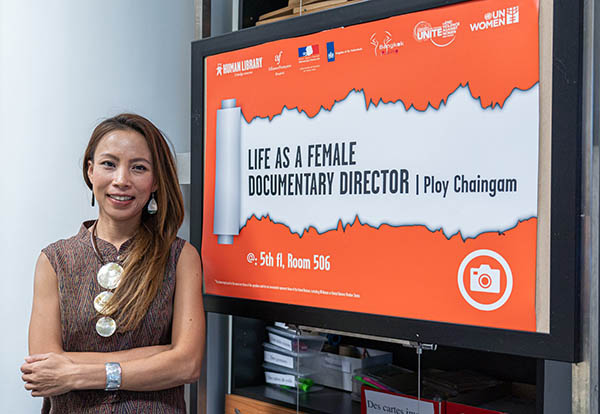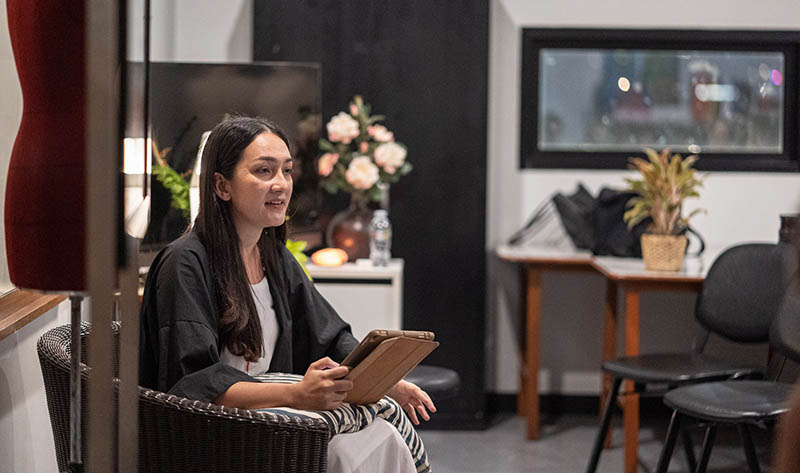Sophia Loibl was only 4 when her gambling-addicted mother sold her.
Her mother got THB2,000, or US$66. In exchange, Sophia spent 22 years enslaved by a family who used and abused her, ultimately infecting her with HIV. It only ended when she leaped from a window to escape.
That was over a decade ago, and now she’s built a new life and has sworn to helping and freeing victims of human trafficking so they too can “take their dignity back.”
Sophia was one of several speakers at the recent “Human Library” event, a Copenhagen import, as part of an international campaign against gender-based violence. Organized by UN Women and advocacy group Bangkok Rising this past Friday at Alliance Francaise, it aimed to break down barriers and stereotypes to build alliances between people of different backgrounds.
“It’s really because of stigma that victims of rape don’t come forward,” said Anna-Karin Jatfors, deputy regional director of UN Women Asia and the Pacific.
Emphasizing the importance of non-judgemental and open dialogue, Jatfors said she hopes such unexpected stories would allow participants to walk out the event “more equipped to handle diversity.”

The event’s human library concept means that participants, or “readers,” can select four speakers or “books” they would like to listen to and interact with. For 20 minutes, those speakers then tell audiences their story and take questions.
Another “book,” Jomtian Jansomrag, opened up about surviving childhood bullying and sexual abuse while living with a mother diagnosed with schizophrenia.
Without parental attention or supervision from her only parental figure, Jomtian was abused by boys around her age in her community.
“Because it hurt so much, I realized it was wrong,” she said. Still shy of 10 at the time, Jomtian tried telling adults, including the parents of the boys who hurt her what happened, but no believed her. Without the help and support she desperately needed, the hurt and confusion curdled into depression.
“If someone had helped her mom with her mental health issues, the girl wouldn’t have been raped. If people have listened to the girl when she has spoken out, she wouldn’t have gotten depression,” she said, referring to herself in the third person.

Other speakers at the event include Ploy Chiangam, who spoke about the challenges she faced as a female documentary film director in a male-dominated industry. Sia Kukaewkasem opened up about the domestic abuse she experienced growing up as an ethnic minority woman. British expat Emma Thomas explored the discrimination, isolation, and even sexual assault she faced while training in Muay Thai in the kingdom.
The event was part of a 16-day streak of activism that kicks off annually starting Nov. 25, the International Day for the Elimination of Violence against Women. Human Rights Day. This year’s focus was on combating rape, sexual violence and abuse.
“For this year’s 16 Days of Activism, we wanted to give people in Bangkok a range of ways to get involved. We provided something for everyone – including arts, sports, discussions, and online activities so that people could even take part from home,” said Thomas, a speaker and Bangkok Rising member.
Other events in this campaign included an improvisation workshop, women’s Muay Thai training and a Roller Derby training.
Check out our live report from the derby rink.
Related:
Thai police get rape response training, but not everyone thinks it’s a problem
Tainted by ‘rape cult’ allegations, rebranded Agama back in business on Thai island
International Women’s Day 2019: Our round-up of some badass Thai women
Trial of Rape: Thai survivors share experiences of abuse and seeking justice at empowering even
Rape remains a serious problem, but reported rates in Thailand not especially high




